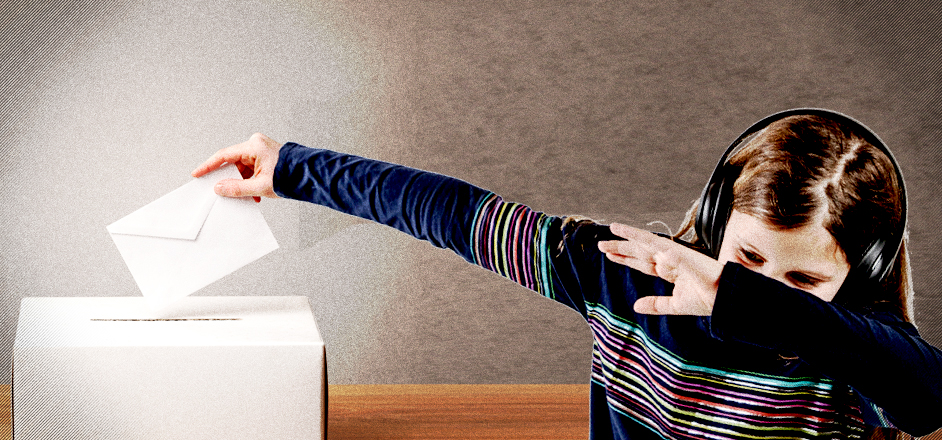In the wood paneled chambers where the Boulder City Council meets, talk of "committees" and "action items" and all the other mundane paper-pushing details of local government filled the room this this week. Four teenagers, waiting patiently, stood at the front paying close attention to their surroundings.
They didn't find this government stuff boring. These teens thought it was "awesome," said one. They were standing there in front of officials, eventually given the opportunity to push their proposal for a small revolution: letting 16 and 17-year-olds vote in local elections.
They're not alone. Across the country, teens are fighting to allow 16 and 17-year-olds, people we already trust not to drive cars into buildings, steer our democracy.
"There's a lot of excitement around it," said Foster Greer, 18, after the meeting was over. The teens then gathered in the foyer, talking about how well their presentation to the Boulder Human Relations Commission went.
The commission officials approved, and immediately began the process of asking city voters to approve it as well. If everything goes over, Boulder voters will be asked on the 2018 ballot if they want to let 16 and 17-year-olds vote in future local elections. If that passes, the teens' first vote could very well be in 2019.
If they can vote, they will only be allowed to vote on local matters: tax hikes, school boards, road improvement packages. Not governor, congress or the president. To vote nationally, the constitution has to change.
The idea for lowering the voting age started with a small seed, and then "spread like wildfire" around Boulder's high schools and youth groups, says Lluvia Macias, 18.
Their efforts are part of a small but growing worldwide movement. Two suburbs of Washington, D.C. already let 16 and 17-year-olds vote in local elections. San Francisco tried, but eventually rejected the idea.
Letting teens vote would open up democracy to a class of people who aren't adults but do a lot of adult stuff: work, pay taxes, drive cars and own guns. (And, of course, sometimes have sex and drink and smoke weed and commit crimes.)
And, says Cole Schoenberg, 16: discuss politics.
"Most of the people I surround myself with are very engaged," Schoenberg says. "They would turn out to vote."
Data backs that up. In Scotland, 16 and 17-year-olds can vote in some elections. And in Austria, they can vote in all elections. In those countries, 16 and 17-year-olds actually vote more than 19 to 25-year-olds.
The Colorado teens say they want a vote on things like sanctuary cities, climate change and taxes. And, no, their political interests are not chiefly free video games or government-sponsored weed. We asked. They laughed.
If America changed its voting age, it would change the country. America is ruled by old people because old people vote. Politicians fund social security but not schools, motorized wheelchairs but not bike lanes, and the national anthem remains boring and stupid, even though "Party in the U.S.A." is still available for licensing deals
Would Trump still be president if teens had voted nationally? Probably. While teens 13 to 17 lean liberal, an Associated Press poll claims they favored Clinton only "slightly." Likely not enough to have filled the White House closets with pantsuits.
Trump or no Trump, even the magazine The Economist — generally stuffy and conservative — supports young whippersnappers getting off their lawn and gaining the franchise.
"A lower voting age would strengthen the voice of the young and signal that their opinions matter," it once wrote. "It is they, after all, who will bear the brunt of climate change and service the debt that paid for benefits, such as pensions and health care, of today’s elderly."



Leave a Reply